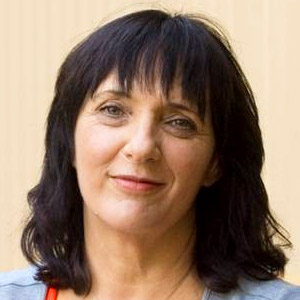 Trauma affects each one of us differently
Trauma affects each one of us differently
SAMHC Featured Blogger:
Dr Cathy Kezelman AM
Medical Practitioner
President of Blue Knot Foundation National Centre of Excellence for Complex Trauma
Blue Knot Foundation National Centre of Excellence for Complex Trauma is celebrating the 10th anniversary of Blue Knot Day on Monday 28th October.
On Blue Knot Day, Australians are encouraged to unite in support of the more than 1 in 4 Australian adults with a lived experience of complex trauma. This year our themes are empowerment, recovery and resilience.
Complex trauma refers to repeated often extreme interpersonal trauma often from childhood – abuse, neglect, violence, but also experienced as an adult, or both. It includes child sexual, physical and emotional abuse, neglect, growing up with domestic violence and growing up with a parent or carer who has their own unresolved trauma such as with a mental illness or an addiction. In adulthood it can occur as a result of domestic and family violence and refugee and war trauma.
This year we are drawing attention to the public health crisis of complex trauma. Not only is it common but people affected often experience a range of often challenging cumulative impacts.
Over 5 million Australian adults are affected and many of these people experience mental distress and are diagnosed with mental health issues.
As two thirds of people presenting to public and private mental health services have experienced sexual and physical abuse, it is critical for the complex trauma which underlies presentations to be identified, acknowledged and appropriately addressed.
We are all individuals, and trauma affects each one of us differently. That said, all of us, under threat or when harmed, have biological responses known as the ‘fight, flight and freeze’ response.
When this happens a lot, as it does for complex trauma survivors, our nervous systems can stay on high alert, anticipating the next danger, or shutting down, or going between both states of arousal.
We can be triggered by what may seem minor events or cues which other people might not identify. We now know that for many survivors, trauma is stored in the body, with flashbacks and body memories throwing us back into the past at a moment’s notice. This can be disarming for those affected as well as for those supporting them.
Many survivors also struggle to manage often strong emotions, as well as their own sense of self-worth and identity. Feelings of deep shame and struggles to feel safe and trust are common too and make a lot of sense in the context of repeated danger, betrayal and abuse of power. It can be hard for survivors to develop healthy relationships, with themselves, others and the world, as well as with education and work opportunities.
Research establishes that unresolved complex trauma can significantly affect a person’s mental health and wellbeing.
Survivors experience high rates of anxiety and depression and other mental health issues, and often carry multiple mental health diagnoses at the same time. Survivors experience many ‘symptoms’ but these symptoms are often coping strategies they have adopted to survive such as self-harm, substance misuse and avoidance.
Recognising these strategies, as well as the impacts of complex trauma to inform our support and treatment responses can provide survivors with the best opportunities to heal.
It is important to begin to address complex trauma now, so that we will not be having this same conversation in 10 years’ time and then again in another ten years. Unresolved complex trauma is a devastating public mental health issue which comes at a significant human cost to individuals, families and communities as well as across generations.
To support a trauma-informed response to the growing crisis, Blue Knot Foundation will launch its 2019 Practice Guidelines for Clinical Treatment of Complex Trauma on 31st October, the last day of mental health month.
These guidelines build on Blue Knot’s highly acclaimed 2012 Practice Guidelines for Treatment of Complex Trauma and Trauma Informed Care and Service Delivery www.blueknot.org.au/guidelines bringing advances in research evidence and best practice.
The research in both sets of guidelines shows that it is possible to heal from even severe early trauma and that, when parents have worked through their trauma, their children do better. But people need good support to help them find their path to recovery, empowerment and resilience.
For more information go to www.blueknot.org.au.
For short term phone counselling, information and support call 1300 657 380 between 9am–5pm, Monday–Sunday #BlueKnotDay #EmpowermentRecoveryResilience
By Dr Cathy Kezelman AM
Medical Practitioner
President of Blue Knot Foundation National Centre of Excellence for Complex Trauma
Dr Cathy Kezelman AM is a medical practitioner, President of Blue Knot Foundation National Centre of Excellence for Complex Trauma.
Cathy has a lived experience of childhood trauma. Under her stewardship, Blue Knot Foundation has grown from a peer support organisation to a national centre of excellence combining a prominent consumer voice with that of researchers, academics and clinicians advocating for socio-political trauma-informed change and informed responsiveness to complex trauma.
SAMHC Featured Bloggers
The SAMHC presents our series of guest featured bloggers who generously share their personal thoughts and experiences of mental health and wellbeing.


